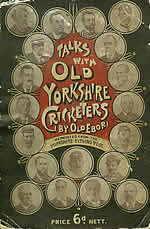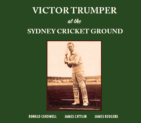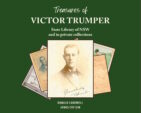Talks With Old Yorkshire Cricketers
Archie Mac |Published: 1898
Pages: 239
Author: Pullin, A.W (Old Ebor)
Publisher: The Yorkshire Post
Rating: 3.5 stars

A cricket standard that has been quoted and used as a reference guide on countless occasions, Talks With Old Yorkshire Cricketers still entertains more than 100 years after being first published.
The author interviewed 18 retired first-class cricketers (bar one who never played at that level) some legends of the game and others whose names have all but been forgotten to history.
The interviews had all been previously published in the Yorkshire Evening Post during the winter of 1897/98 and had proven so popular that it was decided to collect them and republish them in book form. The book ran to two editions so was quite popular in its day.
The biggest surprise was the number of former heroes that had fallen on hard times after their playing days had finished.
‘Old Ebor’ draws reference to their predicament on several occasions throughout the book. This must have touched a raw nerve with the YCCC, as in his preface the author mentions that ‘the authorities are in no way responsible’.
This must have been in response to some of the criticisms that ‘Old Ebor’ had made during the interviews such as ‘the moral responsibilities should surely not end with the termination of his (the Player) active career. He ought not to be cast aside like an old shoe’.
One of the saddest cases was that of John Thewlis; when the author enquired of the YCCC of his whereabouts he was informed ‘think dead; if not, Manchester.’
When the writer did find him ‘he was trudging on foot with a heavy basket of laundry clothes on his shoulder’. A trek of four miles of which ‘at the end of the journey he was anxious to walk back again, as soon as possible, to earn a few coppers by getting in a load of coals’. Not the way to enjoy your retirement, Thewlis at the time was 70, and it was no surprise to discover he died the following year.
As to the best batsman of their day (apart from WG Grace) there was quite a deal of conflicting opinion. One thing that all the players were in agreement about was the best bowler of their time. They all nominated George Freeman – a fast round-arm bowler who claimed 288 first-class wickets at 9.84. Unfortunately Freeman died in 1895, aged 52, before the author had the chance to interview him and he was forced to rely on the testimonies of team-mates and friends for his portrait.
As is normal in most former players, they mostly bemoan the style and attitudes of the ‘modern’ player, which was incidentally the period known as ‘The Golden Age of Cricket’ (1890-1914). Also some of the amusing anecdotes fall a little flat after 108 years, but mostly the book is very entertaining.
You are not a true cricket literature aficionado until you have read Talks With Old Yorkshire Cricketers.
‘Old Ebor’ was actually one A.W. Pullin (1860-1934) who was in his late 30s when he conducted his interviews for this book. He was later to release a companion edition Talks With Old English Cricketers which was released in 1900, this book featured eight of the interviews contained in the Yorkshire talks.
Pullin was the rugby and cricket correspondent for the Yorkshire Post, it was said he never missed a rugby international featuring England in 40 years. He died, rather fittingly, as he was travelling to a cricket Test match. He was one of the rare people included in Wisden‘s ‘Births and Deaths of Cricketers’ even though he never played first-class cricket.






Leave a comment